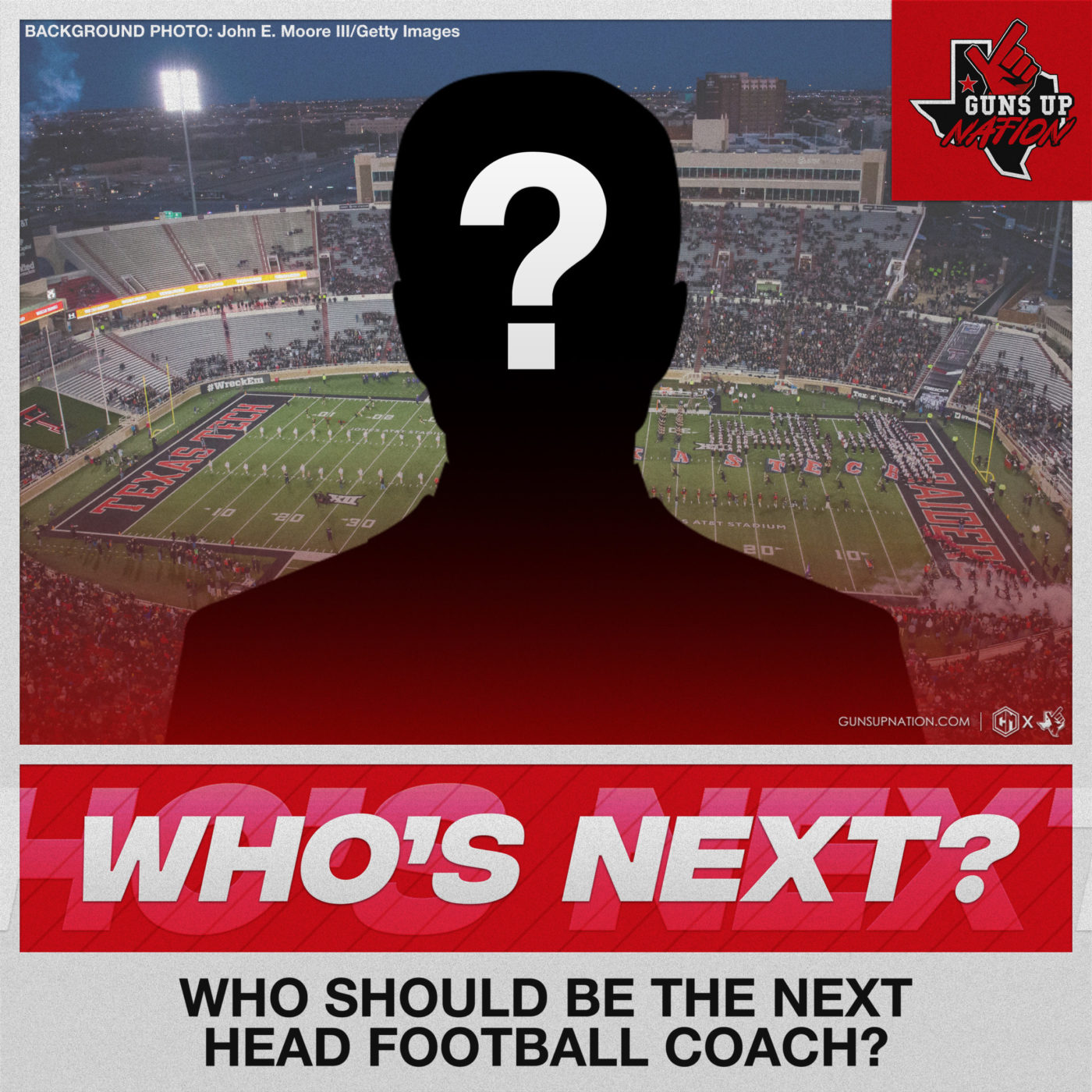
Sonny Dykes (Current Head Coach at SMU):

Dykes is very arguably the safest and best option. He is experienced, versed in the shotgun spread, and the family name is still regarded highly in West Texas. Coach Dykes is well-respected across the state of Texas as well. He is also perhaps the only realistic candidate that would be fully supported by fans, boosters, and the administration. His head coaching record at a few games above .500 isn’t all that impressive, but an argument could be made that two of his three head coaching stops were a success (Louisiana Tech and SMU). The Cal tenure is the mark against him, but Dykes would likely be a far better fit in Lubbock than he was in Berkeley. Dykes is a very solid option that would bring some stability to a program that needs it, and his track record of successful rebuilds combined with his reputation would allow him time to resurrect the program.
Resume: GA/TE Coach under Hal Mumme at Kentucky, WR Coach/CO-OC under Mike Leach, OC at Arizona under Mike Stoops, Head Coach at Louisiana Tech, Head Coach at Cal, Head Coach at SMU. Few who are reading this will need a reminder of his success at Texas Tech. Sonny’s stint as Arizona OC featured similar success as their offense improved instantly in virtually all metrics and experienced continued success. As La Tech HC, he went 22-15 and the team’s record improved each year. His time at UC-Berkeley started off rough with a 1-11 year in which the Bears went winless in conference play. While the next year’s 5-7 season was an improvement (basically by default), the program did make unquestioned strides in Dykes’ third year, going 8-5 as Jared Goff developed into an eventual 1st overall draft pick. However, the team struggled to replace Goff and fell to 5-7 the following year, and Sonny was fired. At SMU, Dykes is 29-14, with the program emerging fully from the depths to top 25 relevance, which is truly an impressive accomplishment.
Pros: Possesses both head coaching success and familiarity with the spread offense/Air Raid. Has significant ties to the area and would be a less risky hire compared to most other options.
Cons: Only Power Five head coaching stop was unsuccessful. While he would certainly be very tempted to come back to Tech, he has a good thing going at SMU and they will pay to try to keep him.
Best-case scenario: Proves to be a great cultural fit and leverages lessons of his career to rebuild Tech’s program as he did for Louisiana Tech and SMU.
Worst-case scenario: Coaching style fails to translate to a higher level of competition and tenure resembles that of the California stint.
Likelihood of being seriously considered for the job: High
Likelihood of accepting the job if offered: High
Jeff Traylor (Current Head Coach at UTSA):
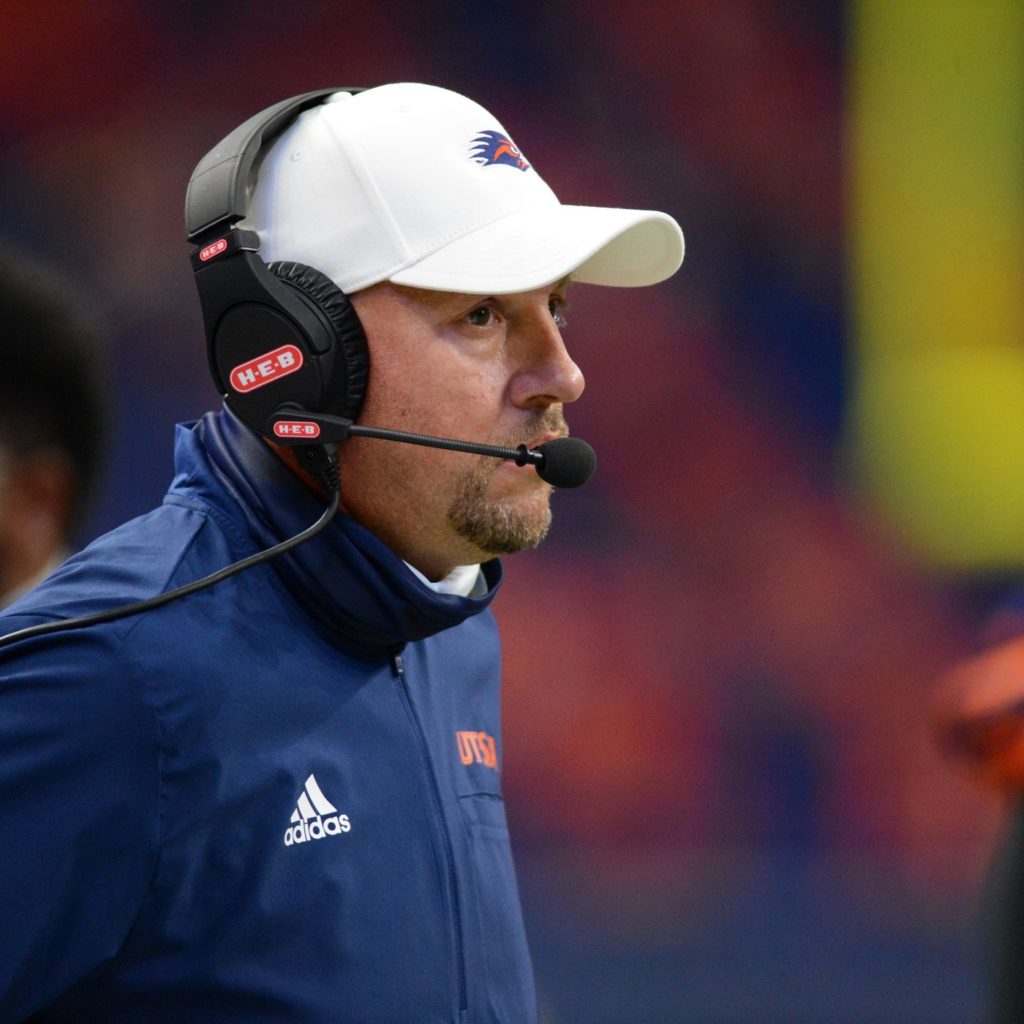
When you combine a first-year coach, a pandemic forcing the installation of new schemes to new players via videoconferences, and needing to build up a fledgling program that hasn’t even existed for a decade, it isn’t exactly a recipe for success. Yet Jeff Traylor managed exactly that, winning his first three games as a coach to put his team in position for a possible conference title. UAB ultimately edged them out for that 2020 conference title game appearance despite having fewer wins as the conference gave the Blazers the nod based on conference winning percentage, but it was a quality season for UTSA nevertheless, and they are yet to lose in 2021. This, after building Gilmer HS into a powerhouse that won three state championships in his 15 years.
Resume: Head Coach of Gilmer HS, Associate HC/Special Teams/WR/TE Coach at Texas under Charlie Strong, Associate HC/RB Coach at SMU, Associate HC/RB Coach at Arkansas, Head Coach of UTSA. Traylor took what was a 4-8 UTSA team in 2019 and put together a winning season instantly in 2020 despite having to use four different quarterbacks. The 2021 Roadrunners are 8-0 and ranked, which is almost unthinkable, but unquestionably a testament to his ability. UTSA hadn’t previously won much in its history, even with Larry Coker at the helm, so he is truly making lemonade from lemons. His 174-26 record at Gilmer HS is nothing to sneeze at, either. Traylor is somewhat of a Texas High School legend, with countless Coach of the Year awards at that level. Texas Tech fans may be particularly interested to hear about his 2014 state championship team that lit up the scoreboards and ultimately finished as the second-highest scoring offense in Texas High School history.
Pros: More successful head coaching experience than most other candidates. Overcomes adversity when it arises. Well-connected and respected in the state.
Cons: Is unproven as a head coach at the Power 5 level. Position coaching at Power Five stops has not been overly successful. Tech is likely to be one of many jobs offers he will receive this year.
Best-case scenario: Traylor quickly turns around Tech as he did UTSA, and uses his head coaching experience to develop players and build a perennially quality program as he did at Gilmer.
Worst-case scenario: Traylor isn’t cut out for Power Five football a la Matt Wells and Co., and doesn’t have answers when what used to work in High School football and at C-USA doesn’t in the Big XII.
Likelihood of being seriously considered for the job: High
Likelihood of accepting the job if offered: High
Anthony Lynn (Current OC of the Detroit Lions):
The 2020 Chargers had a very odd season that essentially kicked off with a doctor injuring their starting Quarterback. This would somehow end up working out favorably for everyone not named Tyrod Taylor (and presumably that team doc’s career), as Justin Herbert looked like a star young Quarterback. The Chargers had a tough run of injuries and lost close games in inexplicable ways multiple times in 2020. It’s difficult to parse out if Lynn should get credit for developing Herbert or criticism for not winning with him, much as it is to figure out if Lynn’s 2020 Chargers were simply unlucky or weren’t coached well enough to close out games. The franchise axed him, so clearly they weren’t happy, but it remains to be seen if they’ll fare better without him. Of note, Lynn was scooped up almost immediately to become the Offensive Coordinator for the Detroit Lions, though the Lions’ offense has struggled thus far. Then again, the Lions typically struggle and it’s hard to ignore how instantly Stafford improved in a better franchise.
Resume: ST Assistant Coach for the Denver Broncos, RB Coach for the Cowboys, Browns, and Jets, Assistant HC with the Jets, Interim HC/OC/Assistant HC/RB Coach with the Bills, HC of the Chargers. Lynn’s coaching career has been entirely at the professional level, and the NFL is a different beast than college football. Kingsbury is doing far better in Arizona than he did as a college coach, and even Nick Saban couldn’t cut it as an NFL coach. Lynn’s position coaching has been largely successful, and there’s an argument to be made that he ultimately did well by the Chargers. At Detroit, it’s possible that no OC could excel with the limited pieces he has to work with. Frankly, it’s tough to figure out if Lynn is a good coach in bad franchises or part of their issues.
Pros: Would be a splash hire and has plenty of connections at the highest level of football. Has ties to the area and program that wouldn’t present issues for the administration.
Cons: Chargers underachieved in 2020, and Detroit’s tenure isn’t going well. His coaching may or may not work at the college level. May not be interested in the position or even available.
Best-case scenario: Lynn comes home and instantly legitimizes the program with his presence. He brings quality coaches with him from the highest level of football and does great things.
Worst-case scenario: NFL experience doesn’t translate, and struggles in the NFL prove to be the product of coaching deficiencies that continue at Tech.
Likelihood of being seriously considered for the job: High
Likelihood of accepting the job if offered: Medium
Jamey Chadwell (Current Head Coach of Coastal Carolina):
Chadwell is deservedly one of the hottest names in coaching right now. The CCU Chanticleers have been consistently good with him at the helm, having lost only two games in the past two years. While most of their success has been against lesser opposition, Chadwell did lead CCU to a big win over a then-#13 BYU team last year and has gone 3-0 versus Kansas the past few years. Beating KU consistently isn’t exactly a huge feather in the cap, but it is noteworthy that Jamey has fared far better than Wells against a common opponent.
Resume: QB/RB/TE Coach at East Tennessee St, Head Coach at North Greenville, Head Coach at Delta State, Head Coach/OC/Recruiting Coordinator at Charleston Southern, Head Coach/OC/QB Coach at Coastal Carolina. Chadwell has won at every stop in which he’s spent significant time, but there’s a question as to how he’s winning. He coached Charleston Southern into an FCS power, but it would later be revealed that the program was allowing improper benefits and using ineligible players. Moreover, there was a poor display of player discipline during the 2020 BYU game, as two CCU players needlessly took some cheap shots on the BYU QB going into halftime which led to a full-on brawl at midfield. There may not be too much to glean from that, but it is a cause for concern.
Pros: If hired, would be likely to bring his full CCU staff that looks very capable overall. Has proven success coaching up talent to beat supposedly “better” teams.
Cons: Success has come at lower levels of football. Concerns about what kind of program he would run. May prefer to continue to build the program at CCU rather than leave.
Best-case scenario: Turns out to be a homerun hire similar to what Matt Campbell has been for Iowa State, and runs a solid program on and off the field at Tech.
Worst-case scenario: Lower-level success doesn’t translate. Corners are cut to try to win and the program represents Tech poorly and/or gets in trouble with the NCAA.
Likelihood of being seriously considered for the job: Medium
Likelihood of accepting the job if offered: Medium
Graham Harrell (Current Offensive Coordinator at USC):
There are inextricable links between Graham and former Texas Tech player and coach Kliff Kingsbury. Both were star quarterbacks in the Leach era. Both are sons of High School football coaches. Both are exceedingly bright offensive minds with great promise in their young careers. Both were even hired to be USC’s offensive coordinator, with Graham being brought in to replace Kingsbury after he received an opportunity for greener NFL pastures. These similarities notwithstanding, it bears mention that Harrell and Kingsbury are very different in coaching style. Harrell is far more of a disciplinarian and is more of a presence. Graham is more like Leach than was Kingsbury, for better and worse. The authoritarian manner in which Harrell operates typically commands player respect instead of players viewing him as a peer or friend, but can also occasionally alienate players who don’t respond well to “tough love”.
Resume: Harrell has coached under Mike Leach, Mike Gundy, Dana Holgorsen, Seth Littrell, and now Clay Helton. As offensive coordinator at North Texas under Seth Littrell, Harrell inherited an inept offense that ranked among the bottom 25 and transformed them into a top 25 offense in all categories in both his second and third year with the program. At USC in 2019, Harrell’s offense averaged 454.5 yards and 32.5 points per game. In 2020, the Trojans went 5-1 and averaged 416.7 yards and 33.5 points per game. Thus far in 2021, USC is averaging 445.3 yards and 29.9 points per game. These numbers are neither overly impressive nor particularly unimpressive, so the question is how much blame or credit Graham should receive as USC has largely underachieved in recent years. For comparison, Tech’s offense this year is averaging 438 yards and 34.3 points per game.
Pros: Air Raid-fluent. He and his father Sam are very well-respected in Texas (especially the DFW area). High ceiling and quality long-term potential if things fall into place.
Cons: No Head Coaching experience. May not prioritize defense and/or may struggle to identify/recruit talent on that side of the ball. The administration might consider him too close to the Leach tree.
Best-case scenario: Tech gets a Lincoln Riley who reinvigorates the offense and erases the ghost of Leach past to reunite a semi-fractured and frustrated fanbase.
Worst-case scenario: Harrell is Kingsbury redux and never gets things to fall in place at Tech as he learns on the job to be a Head Coach.
Likelihood of being seriously considered for the job: Medium
Likelihood of accepting the job if offered: High
Brent Venables (Current DC/Associate HC at Clemson):
Venables falls in the more unlikely of candidates, as his name was bounced around during the last coaching search due to his friendship with Kirby Hocutt. However, Tech seemingly was not able to pry him away from a very comfortable position at Clemson, and that likely hasn’t changed now. Venables is the highest-paid assistant coach in the country and almost makes what Matt Wells does already. He’s arguably earned it, as a decade-plus at OU and his current gig at Clemson have both featured piles of wins. Frankly, the only hope Texas Tech would have of convincing him to leave Clemson would be if he wanted the challenge of being a head coach, which seemingly hasn’t been the case thus far as he’s reportedly had his chances to coach some major programs. Still, for the sake of argument, and because it isn’t entirely out of the realm of possibility, let’s have a look at Venables.
Resume: LB Coach at Kansas State, LB Coach/DC/Associate HC at Oklahoma, LB Coach/DC/Associate HC at Clemson. Venables has been a quality DC for a very long time at a pair of top-tier programs. His abilities are fairly evident considering that fact alone, or you could look at his salary, or at his general esteem in coaching circles. On paper, he would be a homerun hire for a program looking to transform its defense, and his stellar track record there basically nullifies the risk of Brent having not previously served as a head coach. However, he’s in a good situation at Clemson, and it’s likely that his defense that ranks 3rd in points allowed isn’t changing that, even in a down year for the Tigers.
Pros: Defensive mastermind. Familiar with facing Big XII offenses. Would be the definition of a splash hire and would represent a significant coup for the program that would instantly bolster credibility.
Cons: Likely unattainable, short of bankrupting the university to get him. No HC experience, and how he would conduct things on the offensive side of the ball is an unknown.
Best-case scenario: Kirby leverages his friendship and convinces Venables to take a chance on Texas Tech. Venables brings Tony Elliott with him as Offensive Coordinator. National titles ensue, world peace is achieved, etc., etc.
Worst-case scenario: Texas Tech University mortgages itself to offer a ridiculous contract, Venables takes the money and spectacularly fails as Head Coach, and the University is stuck in a bad marriage it can’t afford.
Likelihood of being seriously considered for the job: High
Likelihood of accepting the job if offered: Low
Ruffin McNeill (Current Special Assistant to the Head Coach at NC State):

Ruffin McNeill isn’t a name that is being tossed around as much as it probably should be. His time as Texas Tech defensive coordinator was the most successful Defensive Coordinator’s tenure Texas Tech has had since the Spike Dykes era. Granted, it’s not a particularly high bar to clear there, but at a school known for and certainly capable of producing great offenses, Ruffin was at the helm of several defenses capable enough to slow down opposing Big XII opponents enough to give us opportunities at great success. That is no small thing. His mantra of “clear minds, fast legs” put players in positions to play instinctual football, and it was more effective than anything TTU has seen on that side of the ball since. Following Leach’s termination, McNeill’s lone game as TTU head coach with offensive coordinator Lincoln Riley was an Alamo Bowl victory over Michigan State. History suggests that Texas Tech should have kept that staff intact, and who knows where the program would be if it had not turned to Tuberville to send the program in a downward spiral, but there are no do-overs. Still, Ruffin could get the chance now that he probably should have gotten then. The Lincoln Riley ship has sailed to OU, and Ruffin would likely need to still be paired with a talented OC for success, but Texas Tech could do a lot worse. McNeill is an elite-level motivator and recruiter, as five minutes with him has one ready to run through a wall for him. Ruffin is also a truly quality person that would run a program to be proud of on and off the field.
Resume: DC and/or position coach at multiple schools, most notably Clemson, TTU, Virginia, and OU. Head Coach at East Carolina for six seasons. McNeill’s efforts as a position coach and DC in varying programs have been largely successful. As ECU head coach, however, his six seasons are a bell curve in terms of wins. His tenure looked extremely promising in year four, as his Pirates posted a 10-3 season. The following two years would see his team regress to 8-5 and 5-7, respectively, and Ruffin was terminated after his sixth year as coach. It is worth noting that McNeill’s overall record of 42-34 as ECU head coach is largely in line with his predecessor Skip Holtz and that McNeill’s successors have not posted a season better than four wins since the 5-7 season in 2016 that was Ruffin’s last. Overall, I’m not sure there’s much to glean positively or negatively from McNeill’s time at ECU, and he has at least had success at Tech and elsewhere in other coaching roles.
Pros: Would be a great representative for the program. Has ties to Texas Tech and is better equipped to build a competent defense than most other candidates.
Cons: May not be willing to uproot himself and move back to Texas, as he left OU to be closer to family. Not really an Xs and Os guru and would need a talented OC to do the heavy lifting there.
Best-case scenario: Turns things around on defense and allows an Air Raid/spread up-and-comer like Eric Morris to run things as OC/Assistant HC to produce a balanced team that wins the right way.
Worst-case scenario: Personal priorities distract him from the job and his choice as an offensive coordinator does not pan out.
Likelihood of being seriously considered for the job: Low
Likelihood of accepting the job if offered: Medium
Billy Napier (Current Head Coach at Louisiana):
Napier is turning heads as his Ragin’ Cajuns have improved year after year with him as head coach. The big splash moment was a win over a top 25 Iowa State team to kick off the 2020 season, and Louisiana also competed far better against the Texas Longhorns that Wells’ Red Raiders did this season. Losses for Napier have been rare, and have typically come to quality opposition in recent years.
Resume: Multiple position coaching stints, Recruiting Coordinator, and Offensive Coordinator at Clemson. QB Coach at South Carolina State, QB/Assistant Head Coach at Colorado State, Analyst/WR Coach at Alabama, OC/QB Coach at Arizona State. Napier has found success at both small and big-name programs, and he has obvious skill in coaching the offensive side of the game wherever he has been. Louisiana is currently 6-1 with their only loss on the road to the Longhorns, and the Ragin’ Cajuns went 10-1 in the 2020 season with the only loss coming to a solid Coastal Carolina team.
Pros: Steady rise of Louisiana’s program proves his abilities as a head coach and not just an OC or position coach.
Cons: Lacks in-state ties, and convincing coaches and recruits to follow him a long way from his successes in the Southeast to West Texas could be an uphill battle.
Best-case scenario: Napier’s abilities translate to the Big XII and his offensive background lights up scoreboards, and his successes as HC at Louisiana allow him to hit the ground running here.
Worst-case scenario: In-state credibility never gets established and Napier is not able to settle in and become a good fit.
Likelihood of being seriously considered for the job: Medium
Likelihood of accepting the job if offered: Medium
Alex Grinch (Current Defensive Coordinator/Safeties Coach at Oklahoma):
Grinch could be a quality choice if the powers that be wish for a defensive-minded candidate. As someone who has already successfully coached a defense paired with an Air Raid offense at Washington State, along with success facing Big XII offenses at OU, Alex brings some unique strengths to the table that could translate well to Texas Tech. There’s a question as to if the generally superior talent at OU has done the heavy lifting for him there, but turning around the WSU defense is undeniably impressive, as Tech fans are all-too-familiar with that side of the ball not exactly being a priority for Mike Leach. Grinch would similarly need to overcome some historical/cultural deficiencies at Tech, which makes him an interesting option worth some consideration.
Resume: Recruiting Coordinator/DB Coach at New Hampshire, DB Coach at Wyoming, GA/Safeties coach at Missouri, DC/DB Coach at Washington St, Co-DC/Safeties Coach at Ohio St, DC/Safeties Coach at OU. Defensive Back is one of the most difficult positions to coach or to play in the Big XII given the wide-open passing games most teams employ with some elite skill position talent, so Grinch would be ahead of the game there. Alex is still young enough to have significant upside in his coaching career, and while it would be a gamble to see if he has what it takes to be a head coach, there’s a lot to like in his resume. Hiring Grinch would be an interesting new direction for the program that could jolt Tech out of the downward trend of late.
Pros: High upside, with relevant defensive experience that makes him well-equipped to address a long-standing issue in the program. Good recruiter, even at his non-blue blood stops.
Cons: No head coaching experience, may struggle to put together an offensive staff, fanbase might not embrace a greater focus on defense if it comes at expense of offense.
Best-case scenario: Grinch finally fields a quality defense at Texas Tech and it catapults the program back to previous standing in a different way and thus propels Tech forward into a new era.
Worst-case scenario: Youth and defensive focus combine to leave the offense high and dry, and the team can’t score enough points to keep up even if the defense improves.
Likelihood of being seriously considered for the job: Medium
Likelihood of accepting the job if offered: Medium












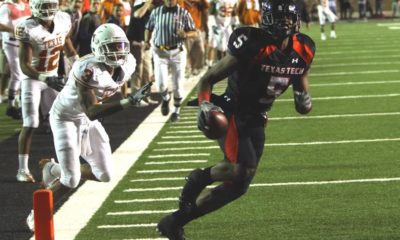

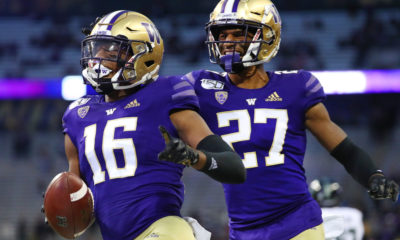

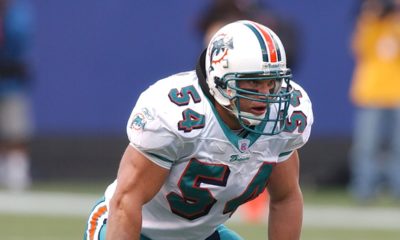



[…] Texas Tech Football Potential Coaching Candidates […]